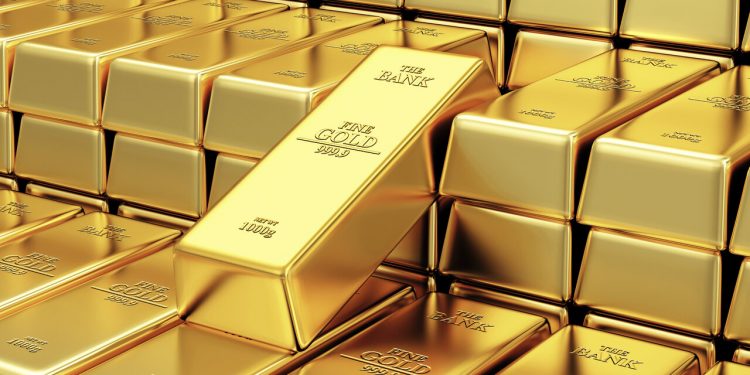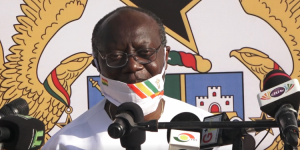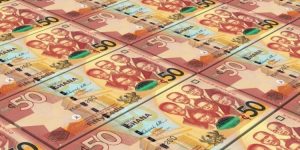Gold has replaced Treasuries as the haven of choice as the conflict in Ukraine worsens, with surging oil prices diminishing the appeal of bonds.
The precious metal is gaining in popularity after Russia’s invasion of Ukraine drove Brent crude prices above the $100 mark last week for the first time since 2014. Bullion jumped about 6% this month, while an index of US sovereign bonds slid 1.5%.
The worst geopolitical crisis in Europe since World War II has redefined the limits of safety for investors as costlier commodities add to fears of accelerating inflation. Even the yen and the Swiss franc, which tend to strengthen during times of risk aversion, have fared poorly due to their respective central banks’ loose monetary policies.
“The whole crisis has gone to a level that we couldn’t have believed, and investors are no longer saying we’ll buy some defensive stocks or bonds,” said Global CIO Office chief executive officer Gary Dugan. “It’s now about buying gold especially against the backdrop of inflation risks that have been made worse by the conflict.”
Gold jumped as much as 2.2% to $1 930.85 an ounce on Monday after climbing to a 17-month high of $1 974.34 last week.
Bids for the precious metal are rising after Western nations moved to exclude some Russian lenders from the SWIFT bank messaging system and targeted the central bank’s foreign reserves. The Bank of Russia said it will start buying gold again.
“Gold may continue to outperform other haven assets, with an added tailwind from central bank purchases and also displaying its characteristic as an inflation hedge,” said Yeap Jun Rong, a strategist at IG Asia Pte. “The conflict has not seen any signs of easing and further escalation may heighten risks of persistent inflationary pressures, which will continue to draw traction for gold prices.”
To be sure, the Bank of Russia’s purchases of gold could turn into selling if the authorities step in to curb the ruble’s losses. With most of the foreign-currency part of Russia’s reserves potentially blocked, the central bank may have to dip into its holdings of the precious metal to intervene.
Bullion has outperformed the yen and franc in part because gold is not directly impacted by the Bank of Japan and Swiss National Bank decisions, said Wayne Gordon, executive director for commodities and foreign exchange at UBS Global Wealth Management. “A step back by the Federal Reserve in lifting rates in March due to the uncertainties, while unlikely, also could add further strength to gold.”
Indexes measuring the performances of the dollar and franc against their Group-of-10 peers have risen less than 0.5% in February while a gauge that tracks the yen has fallen 0.3%.
The SNB kept interest rates at a record low in its most recent policy decision and stuck to its description of the franc as “highly valued.” BOJ Governor Haruhiko Kuroda has said the central bank will keep stimulus in place and conduct further unlimited bond purchases to keep yields within its target range if necessary.
Overnight-indexed swaps signal only a 6% chance the Fed will raise its policy rate by 50 basis points next month, down from a 21% probability seen at the end of January.







